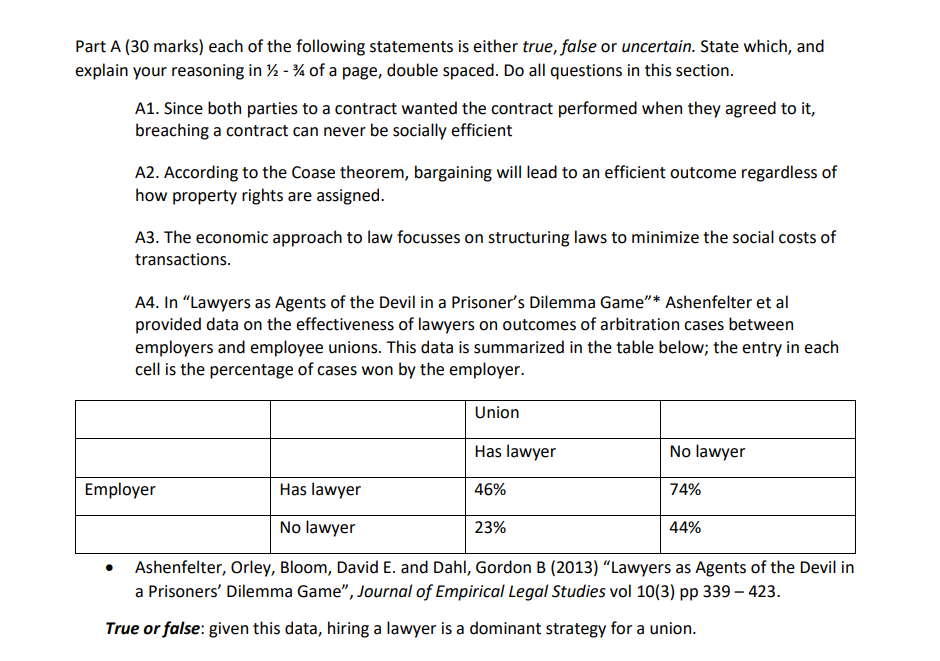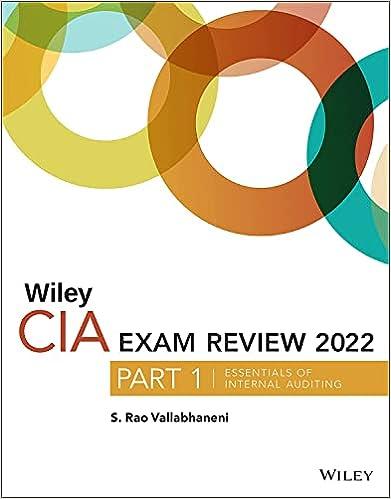
Part A (30 marks) each of the following statements is either true, false or uncertain. State which, and explain your reasoning in %- % of a page, double spaced. Do all questions in this section. A1. Since both parties to a contract wanted the contract performed when they agreed to it, breaching a contract can never be socially efficient A2. According to the Coase theorem, bargaining will lead to an efficient outcome regardless of how property rights are assigned. A3. The economic approach to law focusses on structuring laws to minimize the social costs of transactions. A4. In Lawyers as Agents of the Devil in a Prisoner's Dilemma Game* Ashenfelter et al provided data on the effectiveness of lawyers on outcomes of arbitration cases between employers and employee unions. This data is summarized in the table below; the entry in each cell is the percentage of cases won by the employer. Union Has lawyer No lawyer Employer Has lawyer 46% 74% No lawyer 23% 44% Ashenfelter, Orley, Bloom, David E. and Dahl, Gordon B (2013) Lawyers as Agents of the Devil in a Prisoners' Dilemma Game, Journal of Empirical Legal Studies vol 10(3) pp 339 423. True or false: given this data, hiring a lawyer is a dominant strategy for a union. Part A (30 marks) each of the following statements is either true, false or uncertain. State which, and explain your reasoning in %- % of a page, double spaced. Do all questions in this section. A1. Since both parties to a contract wanted the contract performed when they agreed to it, breaching a contract can never be socially efficient A2. According to the Coase theorem, bargaining will lead to an efficient outcome regardless of how property rights are assigned. A3. The economic approach to law focusses on structuring laws to minimize the social costs of transactions. A4. In Lawyers as Agents of the Devil in a Prisoner's Dilemma Game* Ashenfelter et al provided data on the effectiveness of lawyers on outcomes of arbitration cases between employers and employee unions. This data is summarized in the table below; the entry in each cell is the percentage of cases won by the employer. Union Has lawyer No lawyer Employer Has lawyer 46% 74% No lawyer 23% 44% Ashenfelter, Orley, Bloom, David E. and Dahl, Gordon B (2013) Lawyers as Agents of the Devil in a Prisoners' Dilemma Game, Journal of Empirical Legal Studies vol 10(3) pp 339 423. True or false: given this data, hiring a lawyer is a dominant strategy for a union







